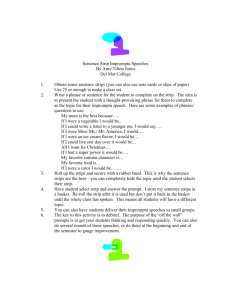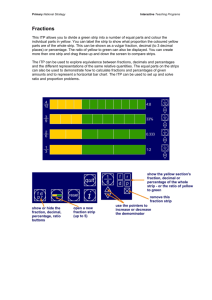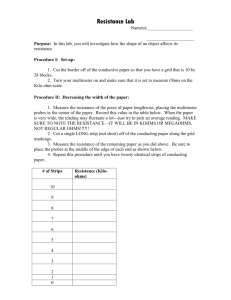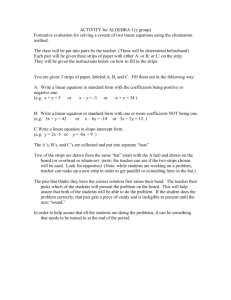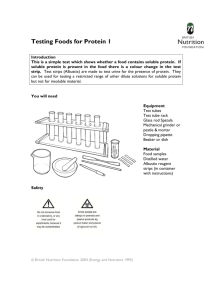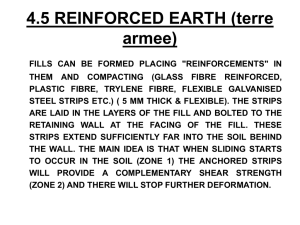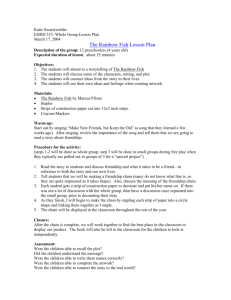buffer_and_strip - Princeton University
advertisement
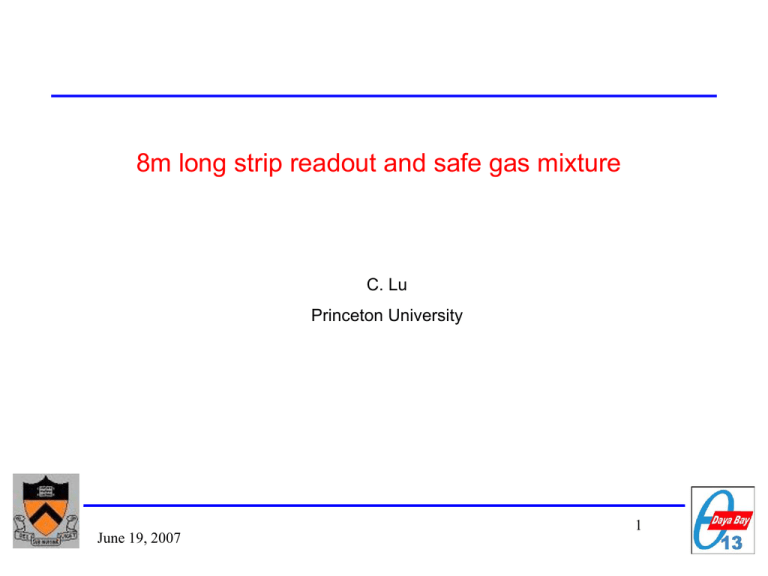
8m long strip readout and safe gas mixture C. Lu Princeton University June 19, 2007 1 (1) Study on strip grouping We have tested three different strip width: single strip, grouping three strips, grouping 5 strips. In the following slides we’ll show the pulse peak ADC spectra and screen captured triggered pulses. Gas mixture used in these tests is Ar/R417A(50/50). The transmission line is formed by strip band/honeycomb/ ground aluminum sheet at the bottom and strip band/RPC+1/4” foam panel/ground aluminum sheet on the top: The far end terminator 12Ω, near end terminator 180Ω. June 19, 2007 2 Single strip For single strip case the pulse height is the maximum. Use linear fanin to add three strips together. 6/7/2007 ADC calibration: V(mV)=0.181*ch+9.88 June 19, 2007 3 Screen capture for single strip 100mV/div, 80ns/div June 19, 2007 4 Grouping 3 strips At the far and near ends connect 3 strips together. ADC calibration: V(mV)=0.181*ch+9.88 June 19, 2007 5 Screen capture for group of 3 strips 100mV/div, 80ns/div June 19, 2007 6 Grouping 5 strips At far and near ends connect 5 strips together. ADC calibration: V(mV)=0.181*ch+9.88 June 19, 2007 7 Screen capture for group of 5 strips 50mV/div, 80ns/div June 19, 2007 8 Use buffer to accept the strip signal We use buffers to accept each individual strip signals, which are isolated by the buffers, thus preserve the pulse shape as single strip’s. The second stage will add all inputs together. Each MAX4351 has 2 Op-amps, thus 4 strips need 3 MAX4351 chips. The transmission line is formed by a strip band/RPC/grounded strip band sandwich: June 19, 2007 9 Screen capture for 4 strips Connect 4 strips to the buffer, 6 consecutive screen captures: June 19, 2007 100mV/div, 80ns/div 10 3 strips and single strip 3 strips connected, top trace is the averaged pulse. single strip connected, top trace is the averaged pulse. 100mV/div, 80ns/div June 19, 2007 11 Efficiency plateau for 3 strips Buffer connects 3 strips, set Vth = 30mV, efficiency plateau: June 19, 2007 12 (2) Safe gas mixture R417A Kwong mentioned an interesting gas mixture R422B, which is a new type of refrigerant and consists of three components: R134A/R125/R600(42/55/3 Wt. %, 41.1/52.8/6.1 Vol. %) I obtained a similar refrigerant R417A, which is also a common refrigerant that belongs to non-flammable category. It consists of three components: R134A(C2H2F4)/R125(C2HF5)/R600 (C4H10) (50/46.6/3.4 Wt. %; 52.3/41.4/6.3 Vol. %). As we can find from above report that the gas mixture Ar/R417A(50/50) performs very well. If we can use this gas mixture, we won’t have flammable gas safety issue, that will make safety system simpler and cheap. The remaining issue needs to be studied is how to use the R417A/R422B gas bottle? Is the gas mixing ration keeps constant from a full bottle to almost empty bottle? After talked to the technical support of Icor a possible solution is suggested by them: June 19, 2007 13 … Safe gas mixture R417A Initially the buffer tank will need a vacuum pulled to eliminate any air and moisture. The buffer cylinder must not drop in temp and re-condense the vapor. The liquid entering rate to the buffer cylinder may have to be ‘calibrated’ to match the amount of gas mix the RPC system requires. June 19, 2007 14 Summary • After we insert the buffer circuit in, the single strip’s pulse shape (large, sharp) is well preserved even connect 4 strips to the buffer’s inputs. • The pulse height ADC spectrum looks good, efficiency plateau curve behaviors nicely. • The “safe” gas mixture, refrigerant R417A with same amount of Ar, works very nicely. If we want to pursue this way, more R&D needs to be done, also the gas system needs to be modified. June 19, 2007 15
